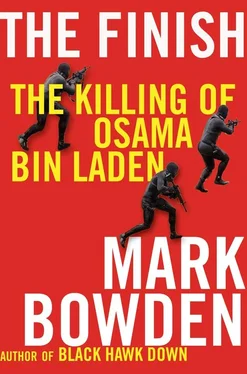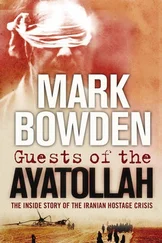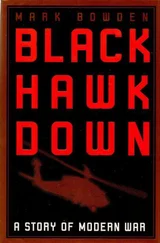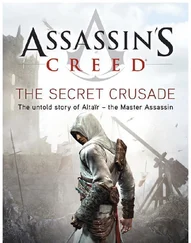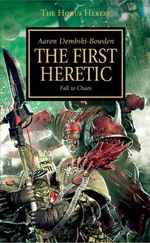Air Force One descended to Andrews Air Force Base at dusk. Many of the people aboard were dozing, having worked a long and difficult day already and knowing that there was a long night ahead. Morell roused himself to look out the window. Two F-16s had maneuvered to escort them down, flying in precise formation off each wingtip so close that on his side he could see the pilot’s face inside the cockpit. In the distance he could see smoke still rising from the Pentagon.
He was at home later that night to watch the president address the nation on TV. Before Morell went to bed, he checked in on his children, sleeping in piles of stuffed animals. He thought: The world they live in has completely changed, and they have no idea.
That night, President Bush spoke from the Oval Office.
“Today our fellow citizens, our way of life, our very freedom, came under attack in a series of deliberate and deadly terrorist acts,” he said. He described the events of the day in detail and lauded those who had responded, at great peril, to the emergencies. He vowed “to find those responsible and bring them to justice.”
The man ultimately responsible, Osama bin Laden, had not been well known outside national security circles prior to that day, but he would soon be the most famous terrorist in the world. In the coming weeks and months he would acknowledge responsibility for the attacks, praise the murderous hijackers as martyrs to his cause, and be caught on videotape chuckling with delight and praising Allah for their success.
“There is America, hit by God in one of its softest spots,” he would say in a videotape released a few weeks later, wearing a camouflage coat, seated alongside the AK-47 he still carried from his days of jihad against the Soviet Union, his long beard showing streaks of gray. “Its great buildings were destroyed, thank God for that. There is America, full of fear from its north to its south, from its west to its east. Thank God for that. What America tastes now is something insignificant compared to what we have tasted for scores of years. Our Nation [he meant Muslims everywhere] has tasted this humiliation and this degradation for more than eighty years [since the demise of the Ottoman Empire during World War I].”
From 9/11 onward, every day that bin Laden eluded America’s grasp was a victory for him. It would be hard to overstate the significance of that. No matter what else the country did to avenge 9/11, no matter how many regimes it overturned, no matter how much it hammered and crippled al Qaeda, every day that man remained at large was an affront. It meant he had done this and gotten away with it, and might well do something like it again.
The two men who would lead the United States in the next decade of warfare had markedly different immediate responses to the attacks. Bush would record his feelings in his book Decision Points . Obama would describe his in speeches and writings in coming years, and he spoke to me about it in the Oval Office.
Bush felt outrage and an urgent desire for revenge. “Someone had dared attack America,” he wrote. “They were going to pay.”
When they had landed at Barksdale Air Force Base that day, the row upon row of parked bombers had reminded Bush of the frightening power at his command. Another man witnessing this display might have reflected on the pointlessness of a Cold War–era arsenal against a stateless enemy with no fixed address, but Bush would later write, “I knew it was only a matter of time before I put that power to use against whoever ordered this attack.”
In his remarks on the night of the attacks he expanded the range of this anticipated retribution: “We will make no distinction between those who committed these acts and those who harbor them.” The president’s eagerness to hit back would continue to pick up speed. It would result in the mobilization of vast armies, the invasion and occupation of two nations, and the launching of smaller military and intelligence missions all over the globe. These missions would consume the next seven and a half years of Bush’s presidency, kill and maim untold thousands, and do more than anything else to shape America’s first decade of the twenty-first century. The war in Afghanistan, the first country attacked, would prove to be the longest in American history. In Iraq, an even bloodier and costlier war would be launched in the mistaken belief that dictator Saddam Hussein bore some tangential responsibility for the attacks and was harboring weapons that could do worse. However misguided much of this would prove to be, Bush’s response accurately reflected the public mood, and satisfied, to some extent, the nation’s need to flex its muscles and lash back at its enemies.
If Bush’s response on 9/11 was to start looking for somebody to bomb, Barack Obama sounded ready to launch some kind of global antipoverty campaign.
Few people were all that interested in the thoughts of the Illinois state senator, but in the days after the attacks his local newspaper, the Hyde Park Herald, solicited his reaction along with that of other local representatives. Obama gave an answer you might expect from a former community organizer with a distinctly international background—his father was Kenyan, and Obama had spent the early years of his childhood living with his mother in Indonesia (he could still speak some Bahasa Indonesia, a language he learned as a child). At Columbia University, living in uptown Manhattan, he had devoted much of his studies to international relations, and he had traveled widely. Certainly more so than any previous president, Obama had grown up globally, a fact that, along with his mixed race and African name, would fuel stubborn suspicions that he was not authentically American. He had firsthand experience with the resentment and anger directed at the United States by many of those living in less fortunate parts of the world, as well as by many blacks growing up in this country. Anti-Americanism was not just an abstraction for him. He had consciously wrestled throughout his life with his own multicultural, multiracial identity, a process he had described movingly in his 1995 memoir, Dreams from My Father . In his response for the Hyde Park Herald, he called for an examination of the root causes of terrorism. “It grows from a climate of poverty and ignorance, helplessness and despair,” he said. He called for America “to devote far more attention to the monumental task of raising the hopes and prospects of embittered children across the globe—children not just in the Middle East, but also in Africa, Asia, Latin America, Eastern Europe, and within our own shores.” It read like left-wing boilerplate and, right or wrong, was clearly out of step with the nation’s anger.
In fairness, the might of America’s armed forces was not yet his to command, and he was not yet responsible for protecting the nation. Nor were his political instincts that good. Obama had a hard time fitting in politically anywhere. In that run for Congress, he was trounced by former sixties activist Bobby Rush, who had cofounded the Black Panther party in Chicago and had once served six months in prison on a firearms charge. Rush’s First Congressional District was one of the few in America where a résumé like his would lead to Congress. It was home to Louis Farrakhan’s Nation of Islam. Obama’s mixed race and international background, along with his Harvard credentials, had worked against him. In the coming years, his message would broaden with his horizons. He had already begun aggressively laying the foundation for his next campaign, a successful effort to unseat Republican Senator Peter Fitzgerald in 2005. But for the moment his response to 9/11 was strictly mundane.
It was from a template that went back to Vietnam. Most liberal Democrats, and many black Americans, had never gotten over that conflict. A quarter century later they still tended to be antiwar and even antimilitary—another of Rush’s curious countercredentials was that he had gone AWOL from the army. But the broad political pattern set in the 1960s and early 1970s—hawkish Republicans vs. dovish Democrats—had begun to show cracks. The old hawk vs. dove dynamic had grown a lot more complex, with liberals pushing for humanitarian interventions in Somalia, Bosnia, and elsewhere over the objections of conservatives, who inveighed against the folly of “nation building,” and “becoming the world’s policeman,” and cooperating with the UN.
Читать дальше
